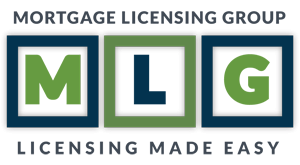Business Plans: The Differences
 Owning your own mortgage business is an extraordinary venture. It’s exciting, though it could come with a number of items required for it to be successful. One of those items is a business plan.
Owning your own mortgage business is an extraordinary venture. It’s exciting, though it could come with a number of items required for it to be successful. One of those items is a business plan.
State regulators review applications once they’re submitted through the Nationwide Multistate System (NMLS). They analyze the data provided, and make sure all information is accurate and adequate for approval. Each state provides a list of items required at the time of your submission. This gives them more information and details of your business to ensure you meet all standards for their state license.
What is a ‘business plan’?
According to Investopedia.com, a business plan “is a written document that describes in detail how a business,…is going to achieve its goals.” In the mortgage industry, a business plan is a required portion of your application when applying for licensure in various states. Though it also entails goals, and other details regarding your company, a licensing business plan requires a different focal point.
When reviewing business plans submitted with a license application, regulators want to know more about your mortgage business moving forward. Similar to a regular business plan, demonstrating growth plans and other business strategies are to be included in the document provided, however, these methods must be based on the mortgage aspects of your company.
What’s your mortgage business style?
Are you a mortgage broker? Are you considering applying for a mortgage banker license? Either way you decide go, a business plan created for the purpose of licensing is like a snap shot of your mortgage practices. States are interested in the various products offered by your company, such as: FHA & VA loans, servicing activities, and other part of the origination process. This process may also include details of your business structure such as organization of employees, growth plans developed by your board of members, and additional branch locations.
Marketing strategies and advertising arrangements should also be included in a licensing business plan. This demonstrates how your company will interact with the public. Public interaction is important to regulators because they want to be sure consumers are protected from predatory lending activities. To ensure your interactions with the public are secure and safe, be sure to also design a skilled plan to handle all customer complaints. A strong customer complaint procedure is always appreciated by regulators. This lets them know that you are hearing your customers and responding efficiently.
What’s the fastest way to plan?
If you’re struggling with your business plan, or perhaps don’t have the time to create an additional document incorporating your mortgage practices into a document already created to establish your company, give The Mortgage Licensing Group a call. Each state has a different approach to a licensing
business plan. With the help of MLG, we ensure our business plan is one qualified enough to meet all state specific requirements. Afterall, we make licensing easy!
The Mortgage Licensing Group, Inc. is a full-service mortgage licensing firm headquartered in Southern California that is recognized throughout the industry as an experienced and reliable service provider. Established in 2006, our company has been on the forefront of the ever-changing rules and regulations, helping alleviate the often daunting task of meeting the diverse state licensing requirements for our clientele.

